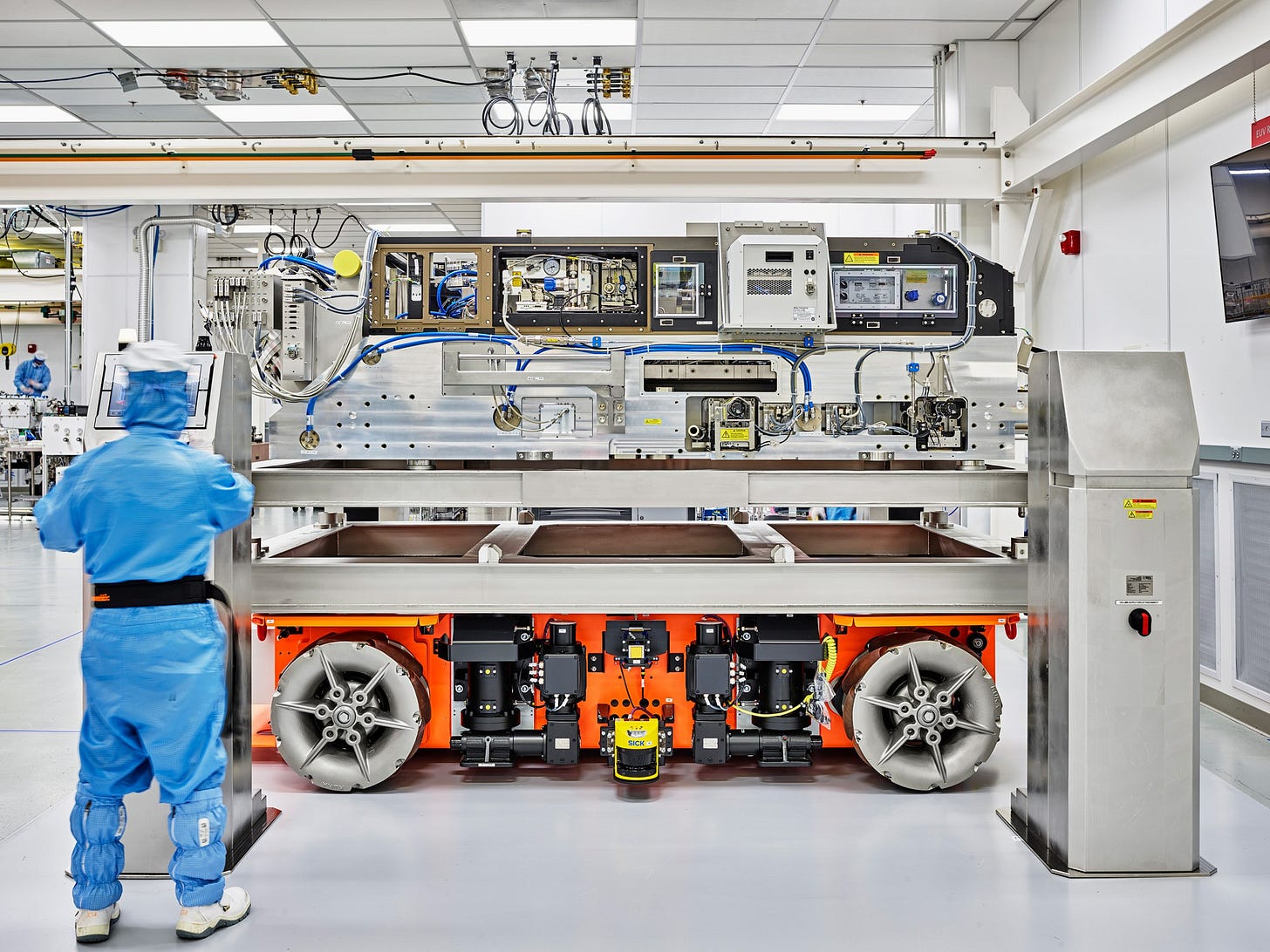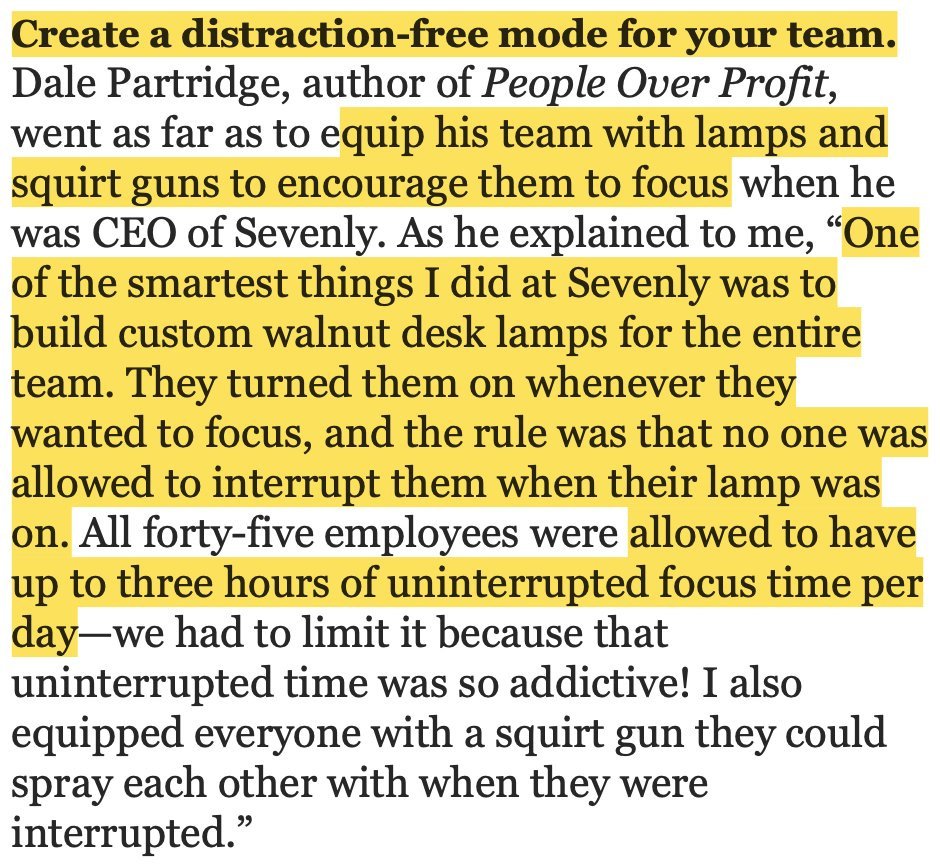⫹⫺ Precision, Focus & Intervention
CMMN WLTH 111 - Cheat Codes for Creators, Makers & Doers
Hello my friends,
When Neil Armstrong took his first steps on the moon, 600 million people tuned in to watch.
Last year, Space X launched a rocket every week. 11 of which were manned missions.
Did you watch any of them?
It begs the question.
Are things less amazing nowadays or are we too distracted to appreciate them?
The story of how ASML is keeping Moore’s Law alive is proof that people are still solving incredibly complex problems with remarkable implications.(See *Product below.)
You just have to pay attention.
— Andy
In this week’s email:
Product - How ASML used persistence to solve an impossible problem.
People - Befriending distraction.
Process - Getting involved often makes things worse.
Out of Office - What happened to all the good advertising?
*Product
High Precision in Design and Engineering
“To give a sense of scale, if you took the mirror in your bathroom and blew it up to the size of Germany, it would have bumps about five meters high […] These mirrors for ASML would have to be orders of magnitude smoother: if they were the size of Germany, their biggest imperfections could be less than a millimeter high.”
While theory and intuition are important, solving complex problems comes down to trial and error. Approach each new problem like a new mountain to climb.
The reason ASML and its partners succeeded is due to what experts described as “sheer, dogged persistence”.
The glass used to focus light are mechanically polished. Even in high precision industries manual methods are superior.
*People
Distraction-Free Mode
“I also equipped everyone with a squirt gun they could spray each other with when they were interrupted.”
There are two main concepts in Chris Bailey’s book Hyperfocus. First, “hyperfocus”, which is the ability to concentrate intensely on a task, while the second is called “scatterfocus”, which is about directing attention inward and reaping the benefits of a wandering mind.
Practicing focus regularly strengthens your ability to concentrate, similar to building a muscle.
Deliberately letting your mind wander unlocks the brain’s creativity mode. Insights are revealed by making connections between seemingly unrelated ideas.
*Process
Iatrogenics: Why Intervention Often Leads to Worse Outcomes
“The hidden assumption that goes unexplored is that you need to do something. Rarely do we even consider that the cost of doing something might outweigh the benefits.”
The concept of iatrogenics refers to situations where an intervention causes more harm than benefit.
Acknowledge that systems can self-correct. Shocks and volatility due to inaction can improve the system by making it antifragile over the long term.
To avoid iatrogenic effects only intervene when benefits clearly outweigh negatives.
*Out of Office
Weekly Subscribers: 350 (+2) ⬆️
Open Rate: 58% ⬆️





